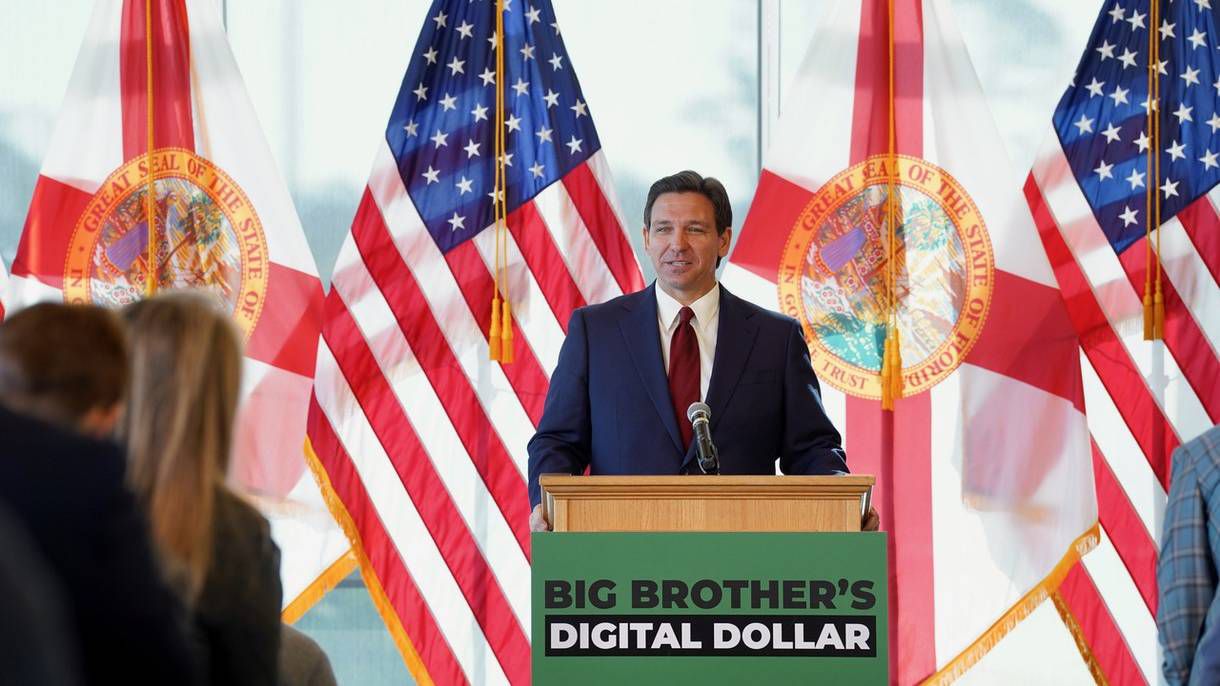FLORIDA — No longer are the days of “what’s in your wallet?”
While a Central Bank Digital Currency (CBDC) is not likely in the United States for years, if ever, it’s still possible, and Florida Gov. Ron DeSantis is already working to ban a "centralized digital dollar" in the Sunshine State.
DeSantis proposed legislation Monday, calling out “Big Brother’s Digital Dollar,” to protect consumers and businesses in Florida, saying a CBDC “would diminish the role of community banks and credit unions and track consumer spending, while having the power to cut off access to goods and services.”
During Monday’s announcement, DeSantis pointed to an executive order from President Joe Biden last year calling for “urgency on research and development of a potential U.S. CBDC,” according to a White House release, “which aims to create an opportunity to reinforce American leadership in the global financial system and the technological frontier.”
This comes amid a rapid growth in cryptocurrency, and as “over 100 countries explore or pilot CBDCs,” the White House release stated.
According to a Washington, D.C.-based think-tank, the Center for Strategic & International Studies, China has been exploring digital currency since 2014 and began testing the first e-CNY system in 2020.
If a CBDC were to be adopted in the U.S., it should follow these guidelines, according to a January 2022 discussion paper by the Federal Reserve that examined the pros and cons of a Central Bank Digital Currency:
- Provide benefits to households, businesses, and the overall economy that exceed any costs and risks
- Yield such benefits more effectively than alternative methods
- Complement, rather than replace, current forms of money and methods for providing financial services
- Protect consumer privacy
- Protect against criminal activity
- Have broad support from key stakeholders
Federal Reserve Chairman Jerome Powell said they have made no decisions on whether to pursue a CBDC and will not do so without Congress approval.
However, calling it a “weaponization of the financial sector,” DeSantis’ proposed legislation calls on like-minded states to join Florida in adopting similar bans within their commercial codes to deter the federal government from adopting such a financial system.
No bill has been currently filed in the Florida legislature. The regular legislative session ends May 5.
Meanwhile, Biden issued the first veto of his presidency on Monday in an effort to kill a Republican measure that bans the government from considering environmental, social and corporate governance or ESG, when making investment decisions for American’s retirement plans.
This comes four days after Florida issued a joint statement between 18 states committing to lead state-level efforts to “protect people’s pensions from the ESG model of ‘politics before fiduciary duty,’” a release from the DeSantis’ office said.
Last month, the governor proposed banning “social credit scores” and codify a requirement for state and local agencies to exclude ESG considerations from investment decisions.



